In Conversation is a feature in which the senior staff talk about a recent record we’re listening to. Not exactly a review, it’s pretty much exactly what it says on the tin: two music nerds having a conversation about an album with all the tangential nonsense, philosophical wanking, and hopefully insightful commentary that implies. This time out we’re taking on a release from one of the senior staff’s mutual favourite contemporary neo-folk artiists.
Rome
Hell Money
Trisol
Alex: I’ve had a harder time getting a handle on “Hell Money” than any other Rome album, and it’s been kind of difficult to pinpoint why. Since I became a fan of the project my favourite material has always been the more sepulchral and glorious stuff on the likes of Masse Mensch Material and Confessions d’un Voleur D’âmes, and while I appreciate and enjoy the feel of Jerome Reuter’s more low-key and confessional songs, a whole album of them is certainly daunting. Part of the appeal of the project for me is the complexity of its artistic remit; Reuter writes amazing songs that explore the relationship between the self and the world-changing, where personal tragedy and triumph bleed into the greater mythic conflicts of the 20th Century. Hell Money is short on that and long on Reuter’s own psyche as a focal point, and that’s taken some adjustment.
After a few listens and some careful consideration, I think I’ve come to terms with where it stands and what it’s trying to accomplish, and have been able to enjoy it more. Still, it’s nowhere as immediate as anything else he’s done, at least for me. I think part of the issue is that it’s a bookended record; it’s absolute best moments come at the beginning and the end in the form of “Fester” (a song which has grown on me considerably since I heard it released as a single) and “The Demon Me (Come Clean)”. The songs that come between those two peaks are good, some of them quite possibly great but it’s hard not to feel like the whole record is an arc between them. Would you agree with any of that?
Bruce: To a degree. There’s no question that “The Demon Me” is one of Reuter’s best, but I’d like to save discussion of that track for the end. “Fester” is definitely working better for me as an entryway to an album (after being introduced with some stormy ambiance) and has grown on me a good deal from the single release. As for the songs between, it’s definitely the starkest and bleakest run of music we’ve had from Rome, and yes, that shift to the confessional and personal took some adjustment, but I think once you’ve done that there’s some great, affecting stuff on tape.
For me, the two keystones to the record’s difference from the rest of Rome’s catalog are “Tightrope Walker” and “Golden Boy”. The former is about as resigned, weary and forlorn as we’ve heard Reuter’s voice and instrumentation, and while it’s one of those naked and confessional songs (a character portrait) it feels as though lyrically it’s filtered through a poetics the listener doesn’t have full access to. It’s like the analogies and metaphors have a shadowy, deeper emotional resonance that’s being intimated and hinted at rather than being laid bare (ironic given that earlier albums have given us titles like “The Joy Of Stealth”).
On the other hand, “Golden Boy” is perfectly clear in it’s “I’m fucked, fuck you” message, but uses musical sprains and tics to convey disquiet: hints of the noisier, more industrial elements of Rome’s earlier material are chained to the acoustic beats and strums of the song, like rhythmic punctuation marks. I also liked how the vitriolic hiccups and choppiness of “Golden Boy” gives way to pleasant, melodic outro. This is more “difficult” listening, yes, but I think the singer-songwriter territory into which Reuter’s been moving demands that, lest you end up with nothing but treacly ballads. Lyrical content aside, how is the musical shift away from Rome’s early martial sounds working for you?
Alex: Just fine I think. I’m genuinely not much of folk guy, but I can appreciate when the bareness of a set of songs adds to their thematic resonance, you know, like how Springsteen decided the that releasing the demos for Nebraska made more sense than recording them with the full band. So in that sense I think having Hell Money be a bit more unadorned with relatively few big samples and ominous pads makes sense. Reuter always uses sounds and images that invoke war very responsibly. There’s a history in neo-folk of armed conflict as a cheap metaphor for personal conflict and he doesn’t ever indulge that for bombast or to lend gravitas to his lovelife or anything. So yeah, a move away from specifically martial sounds is a good artistic decision. And you still have these very produced sounding songs like “Pornero” (which makes lovely use of a banjo I think) and “Red Bait”, although I think they serve more as palette cleansers for the soul-baring numbers in the context of the record.
So here’s a question for you: what’s the narrative of this record? The press release when it was announced talked about how fragmented and haunted the LP is as a reflection of the character voice Reuter is using, but on listening to the album there’s no ambiguity about who he’s singing about at all, it’s definitely supposed to be from his perspective lyrically. So like, is this a snapshot of Jerome’s current state of mind? Is it the afterbirth of the massive undertaking of Die Æsthetik der Herrschaftsfreiheit, which was ultra-conceptual and didn’t have a ton of room for Reuter himself? I feel like there’s a key to “getting” the record that hinges on divining that, but as you point out it’s all obfuscated by these very obscure symbols and tropes and we don’t really have a rosetta stone of any kind to decipher them. Am I just thinking about this too hard?
Bruce: You might be overthinking it a tad. I think we’re dealing with a very personal record about relationships, self-reckoning and the like, and that material like that often comes out in the form of veiled allusions, the full significance of which isn’t (or perhaps can’t) necessarily be understood by listeners. There’s nothing wrong with that if it doesn’t get in the way of the music or the underlying emotional thrust of the material. Hell, Tori Amos spent about four albums doing nothing but testing her fan base’s devotion with increasingly arcane and obscure in-jokes and imagery, and Jerome’s nowhere near that.
Anyway, I like your idea of this being an afterbirth or decompression type of record. Don’t forget that the stripped-down Nebraska came on the heels of the mammoth The River double-album. We’ve talked a lot in person and on this site about how singular the speed at which Rome have released proper LPs is, especially when taking into account the steady evolution of the project’s sound. I’ve already read some muted grumbling from Rome fans about Hell Money signifying a total divorce from the martial sound, but that’s been in the works for at least three years, since Flowers From Exile, and, as I intimated this time last year, Die Æsthetik‘s concessions to those motifs felt more like part and parcel of the total surveying of all of Rome’s modes to date which that record set out to do.
Speaking of disavowals and moving on, I have loads to say about “The Demon Me”, but I’ll yield the floor to you first. How does the song fit in with your take on Hell Money?
Alex: Well, that’s kind of a chicken/egg scenario. I don’t think I necessarily would have formed the viewpoint that this was Jerome’s record about himself without that song capping everything off. It’s just not possible to imagine it being about anyone else, unless he’s writing about some proxy that also sings songs about war and the modern history of Europe. It’s so crazy-literal that it’s arresting, the kind of song that has resonance specifically because we have an investment in the artist who wrote it and we’re seeing this beautiful self-portrait so steeped in the personal that it becomes an uncomfortable, almost ugly form of voyeurism.
Cartoonist Peter Bagge once wrote something to the effect that despite loving The Beach Boys more than any other band, he couldn’t stand listening to Pet Sounds because it felt like he was rummaging through Brian Wilson’s psyche uninvited. That’s how I feel about “The Demon Me,” which, come to think of it, may account for why I’ve been working so hard at this album. I refuse to believe anyone as smart and philosophically astute as Reuter is capable of accidentally leaving the door unlocked. He wants the listener to understand on some level but we don’t have all the pieces of the puzzle. So yeah, I guess it sort of casts a shadow back across the whole record and how I relate to it. Doesn’t hurt that it’s a pretty song though.
Bruce: I think I had that same shocked, double-take reaction when I realised just how plainly the song was about him and his work (I sang of countries so far / Some I’ve never seen / And of raging wars / Yet I’ve never been), especially given the arms-length at which I felt I was being kept on previous tracks. This is territory which people who work in neofolk and martial music, regardless of their political alignment or claims of being apolitical almost never approach. Reuter isn’t asking “why is this subject intriguing?” – it’s all too easy to spout off some platitudes about rediscovering cultural roots or, worse, droning on about the subconscious appeal of the will and unity connoted by fascism – but rather “why am I intrigued by this subject?” That sounds like it could be a job interview question, but when asking an artist to turn inward to the origins of their own relationship with their own muse it can be a harrowing thing.
For all of that self-evisceration, it’s also struck through with the weariness and resignation we’ve already talked about. That’s a difficult balance to maintain, but the core song underpinning it is just so damned good (as is the bitter “It’s a good thing that the wine still agrees with me” line) that it works wonderfully, and brings to mind the nigh-sacred fatalism of Swans’ “Blind.” I’ve never really thought of Reuter holding much in common with Gira as a songwriter, but in both cases we have singers who’ve always cast an unflinching eye at the world around them and cataloged it in a steely aesthetic bitterly turning inward, examining their own lives and creative processes and finding them lacking.
If at least part of Hell Money‘s effect, if not conscious intent, is to unpack Reuter’s personal baggage and make a break with the work he’s done up until this point, “The Demon Me” is about as perfect a way to accomplish that as is possible. I really don’t know where Rome goes from here, but in the meantime we’ve got a raw and moody piece of work upon which to ruminate.

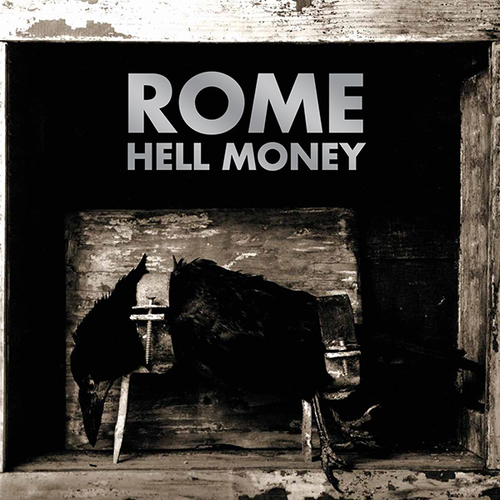
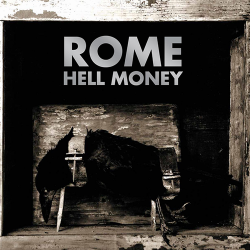


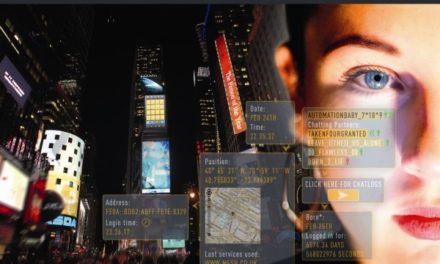
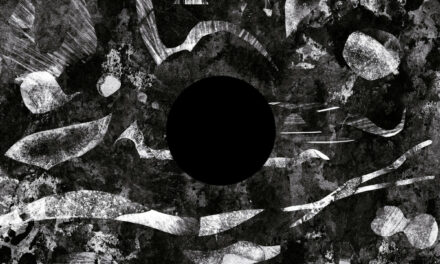
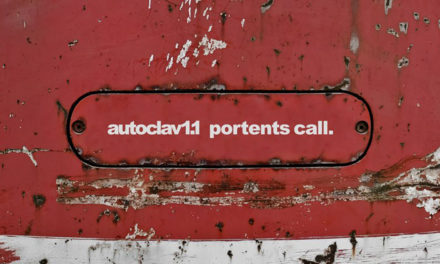
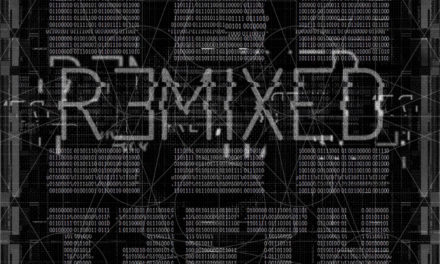
Trackbacks/Pingbacks